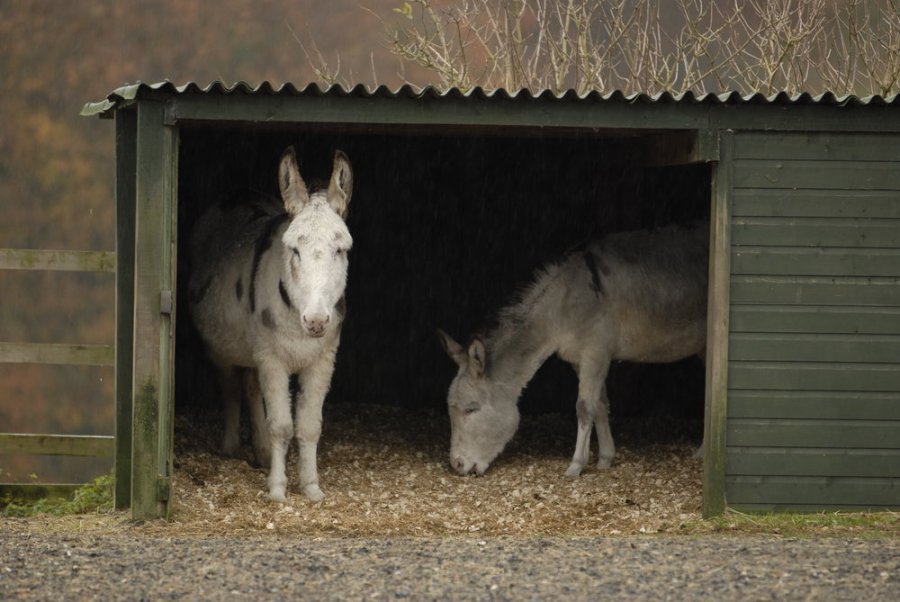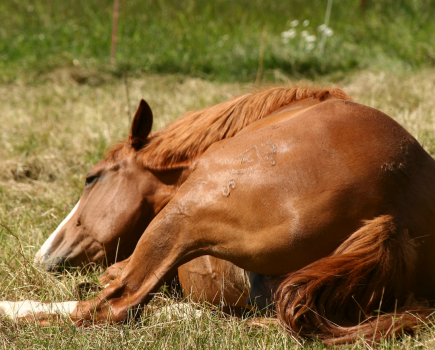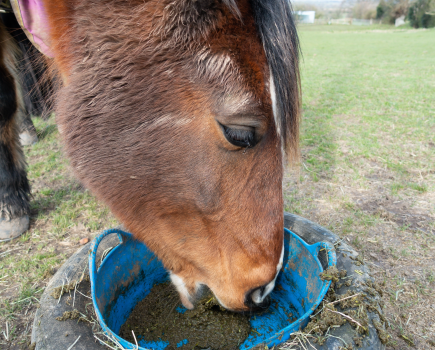Related to horses they may be, but donkeys have very different needs when it comes to their care. Here to give you advice on donkey care is behaviourist Ben Hart who regularly works with donkeys at The Donkey Sanctuary.
What makes donkeys different?
Looks aside, it’s their personality that really sets donkeys apart from their horse and pony relatives. Wrongly mislabelled with a stubborn attitude, they have a reputation for being hard working yet wilful. “A donkey’s ‘fight’ mechanism is more easily engaged than a horse’s,” says Ben Hart. “In the wild they live in a different environment and smaller herds than wild horses do, so when danger approaches it’s not always possible to run away. Instead they’ll stand their ground and defend themselves, and this feisty attitude is still instilled in donkeys, even after years of domestication.” Tough they may be, but donkeys must have the right care in order to flourish and live a long and healthy life.
Feeding donkeys
The best way to feed a fit and healthy donkey is with ad lib access to barley straw to avoid the risks of hyperlipaemia which can be fatal in donkeys. Weight gain is their biggest enemy, and as they tend to have a slower metabolism than horses, a low starch, high fibre diet is essential in order to help them remain a healthy weight and guard against the dangers of laminitis, which is something they’re prone to.
“The donkeys I work with at The Donkey Sanctuary our young, fit and healthy and have a diet largely based on high fibre barley or straw, with small amounts of hay, haylage or grass,” says Ben. “If needed we top this up with a balancer, which gives them all the vitamins and minerals they need.”
When looking for a balancer or high fibre hard feed, go for one that’s donkey-friendly. Top Spec Donkey Forage Balancer has been designed in conjunction with the Donkey Sanctuary to promote general health, while being low in calories. Saracan Horse Feed’s Donkey Diet is low in energy and protein, but high in fibre, and Mollichaff Donkey is a complete fibre feed formulated especially for donkeys which is low in sugar and starch.
As with feeding a horse, common sense should always dictate, and any changes to your donkey’s diet should be made slowly and gradually over a period of four to six weeks.
What not to feed your donkey:
- Feed supplements, unless recommended by your vet
- Cereal-based feeds as these may be too high in sugar
- Treats with a high sugar content. Instead go for limited chopped apples or carrots
Worming donkeys
It’s advisable to ask your vet to provide you with an effective worming programme for your donkey to help prevent the build-up of worms in their system. As with horses there are different types of wormers that tackle different worms, and each should be used at the correct time of year.
Donkeys can tolerate a large lungworm infestation without showing any signs, whereas horses will suffer a severe cough if they contract this parasite. “Many people are led to believe horses and ponies can’t live together because donkeys carry worms, but with an effective worming programme both can be put in the same paddock without any concerns,” says Ben.
“Regular faecal egg counts (FEC) are taken at The Donkey Sanctuary to determine if a donkey needs worming. If done with the correct care and management, this is a great way to protect your donkey as well as preventing a resistance to wormers as you’re not using them unnecessarily. FEC can be arranged through your vet or you can obtain a kit online. A sample of dung is sent off to a laboratory for testing and can see tell you if worming is required by checking how many worms are in your donkeys internal system. These should be done four times a year to make sure a worm burden doesn’t go undetected.”









